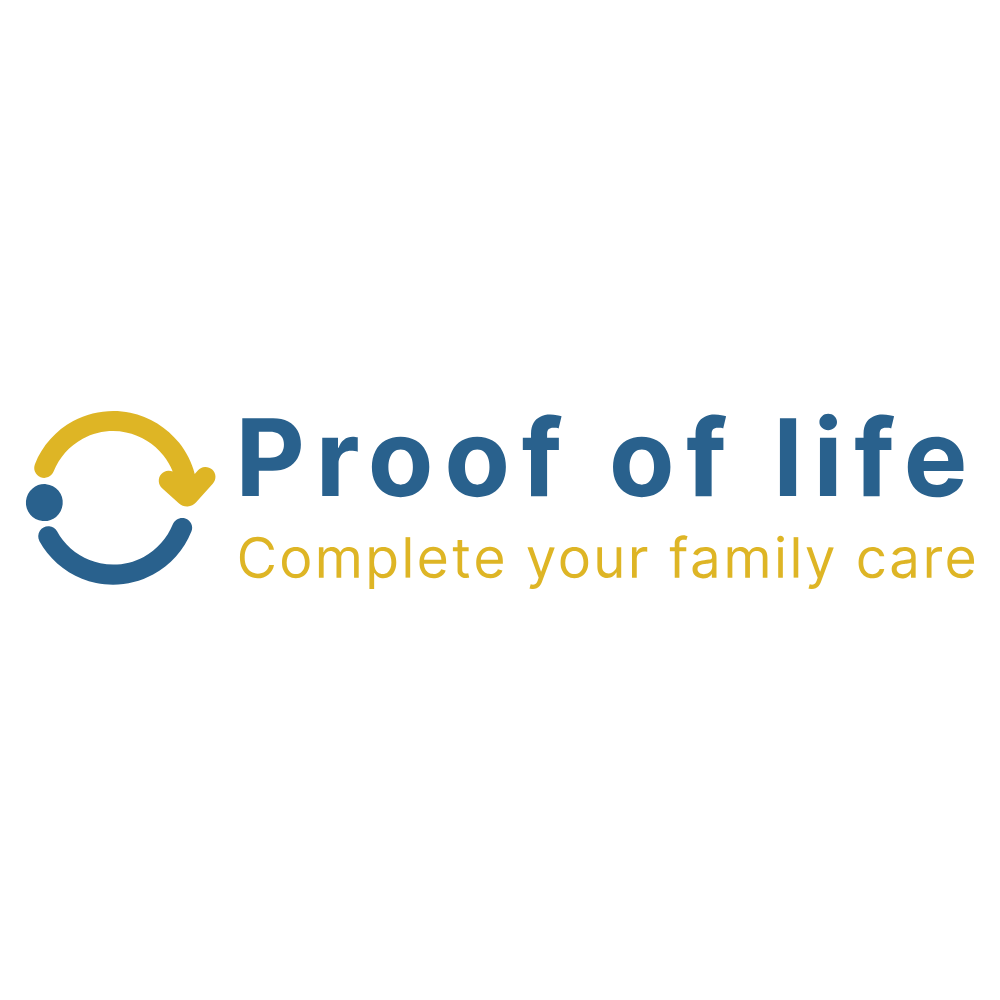1. Introduction – Why Digital Calm Is the New Peace of Mind
For many families, the digital world feels like an unending storm of alerts, passwords, and invisible risks. Data breaches, identity theft stories, and the constant flow of personal information can quietly create a sense of background anxiety, even when nothing is “wrong.” Psychologists now recognize this state as digital stress: the feeling that one’s privacy, security, or personal boundaries are slipping beyond control.
“The antidote to mental chaos is clarity — and clarity comes through organization.”
Protecting your digital identity isn’t just a technical task; it’s a psychological one. Every step toward organizing, cleaning, or safeguarding personal information contributes to emotional clarity and confidence. Knowing your data is secure can reduce tension, improve focus, and even strengthen family communication.

This article explores how digital identity management affects mental well-being: why taking control of your online presence reduces anxiety, how it nurtures trust within families, and what research tells us about the connection between order and calm.
For an overview of how digital identity protection fits into a broader family strategy, see Digital Identity Protection and PII Removal: Why It’s Now a Family Essential.
2. The Hidden Mental Load of the Digital Age

Modern life demands constant digital vigilance. Passwords, verification codes, privacy settings, and data leaks all compete for our attention. Even if we don’t consciously dwell on these risks, they occupy mental bandwidth. Some media outlets and commentary referencing Stanford-affiliated research suggest that multitasking and excessive information input may raise cortisol, the stress hormone, and decrease the capacity for sustained attention.
The concept of “digital clutter” parallels physical clutter: just as an untidy home can make us feel overwhelmed, a disorganized digital environment, such as old accounts, uncertain privacy settings, and repeated data leaks, can erode our sense of security.
Concept: The Zeigarnik Effect
The mind tends to remember and stress over unfinished tasks until they are completed or resolved — creating a constant, low-level tension.
Families experience this collectively. Parents worry about children’s exposure online, while younger generations often feel responsible for helping older relatives navigate privacy issues. These shared but unspoken tensions can subtly undermine daily peace of mind. Organizing your digital life by closing unused accounts, securing passwords, and opting out of intrusive data systems, will relieve this invisible pressure. Order, in the digital realm as in the home, restores equilibrium.
“When essentials are organized, the mind receives a powerful signal: This is under control.”
To understand where digital exposure originates, read 7 Ways Your Personal Information Gets Exposed Online.
3. The Psychology of Control and Confidence

A key principle of psychological well-being is “perceived control”, the belief that we can influence what happens to us. When individuals feel powerless over their data or devices, their anxiety rises, mirroring the loss of control seen in other stressful life situations.
Research in cyber-psychology shows that individuals who take active steps to secure their data, by using password managers, opting out of data brokers, or setting up identity alerts, report significantly lower stress levels and higher digital confidence. It’s not merely the protection itself that matters, but the act of reclaiming agency.
This sense of control extends to families. When parents demonstrate good digital hygiene and involve children in privacy habits, they model empowerment rather than fear. Some research suggests that when families coordinate about digital safety, by setting goals, boundaries, and rules together, they may experience fewer screen-time conflicts and potentially stronger cooperation. For example, a 2024 Pew survey found substantial variation in how families set limits and how much disagreement there is around device use.
Concept: Locus of Control
An internal locus means believing you can influence outcomes — a key predictor of lower stress and higher emotional resilience.
Security, in this sense, becomes emotional scaffolding: a structure of predictability that reduces uncertainty.
For families looking to turn control into routine, see Protecting Your Family from Identity Theft: Best Practices.
4. The Emotional Impact of Clutter and Cleanup
Few experiences are as satisfying as decluttering, whether it’s cleaning a room or deleting outdated accounts. Psychologists describe this as the “order-relief effect”: the brain responds positively to visible progress and restored control.
The same applies digitally. When you clear your online presence, removing old social profiles, unsubscribing from unused services, and erasing outdated records, you create mental space. A study published in Science Direct found that participants who reduced online clutter reported improved concentration and reduced decision fatigue.
“Organization is not just order — it’s emotional security in physical form.”
Digital cleanup also diminishes the constant background worry of exposure. Families who use structured removal processes, like clearing data broker sites, experience what behavioral scientists call “anticipatory relief”, the comfort of knowing they’re protected before a crisis occurs.
In short: when your online identity feels organized, your emotional world follows.
To learn practical data-cleanup techniques that produce this sense of relief, explore How to Remove Personal Information from Data Broker Websites.
5. Reassurance, Trust, and Family Communication

Family security isn’t only about passwords, it’s about peace between people. The act of managing digital safety together fosters trust and reassurance. When parents openly discuss data risks and share access responsibly, children and elders alike feel safer, not restricted.
This transparency builds psychological resilience. Instead of secrecy or shame (“I clicked the wrong link”), family members can approach digital mistakes as learning opportunities. Studies on “collective efficacy” in families show that cooperative problem-solving reduces stress and improves interpersonal trust.
Research Insight
Family therapy studies show that predictability and transparency reduce conflict, promote trust, and improve emotional bonds.
Moreover, sharing secure digital access, through password managers or emergency contact systems, removes future uncertainty. Loved ones know how to retrieve vital accounts if something happens, reducing anxiety about the unknown.
Open conversation transforms digital identity from a private burden into a shared value. It becomes part of family culture: protecting each other’s information because it protects each other’s peace.
To see how this communication extends into end-of-life planning, read Digital Legacy: Managing Online Accounts After Death.
6. The Science of “Digital Serenity”
Beyond reducing anxiety, digital order supports deeper well-being. Cognitive scientists describe a state called “digital serenity”, a balance where one’s online and offline identities feel integrated rather than competing.
This calm arises from predictability: knowing where your data lives, who has access, and how to act if something goes wrong. It’s similar to the calm produced by emergency preparedness, where confidence replaces fear.
Neuroscience tends to support this link between structure and serenity. Work by researchers affiliated with the University of Sussex shows that the brain’s prefrontal cortex is engaged during organised, goal-directed cognitive behaviour. This supports the plausibility that organised digital habits engage the brain’s executive control systems, those areas of the brain associated with planning and emotional regulation, rather than the amygdala, which governs stress responses. In effect, order replaces panic with planning.
For families, this serenity is contagious. When one member leads by example, setting privacy boundaries or initiating data reviews, it encourages others to follow. Over time, the family’s digital environment becomes calmer, safer, and more intentional.
“Preparedness is not paranoia — it’s compassion in action.”
7. Conclusion – Calm as a Family Value
The ultimate goal of digital identity protection isn’t perfection; it’s peace. Families who adopt simple, steady habits to safeguard their data experience measurable psychological benefits: lower anxiety, stronger confidence, and deeper trust in one another
Managing your digital identity transforms security from an abstract chore into an act of emotional care. It says, “We’re prepared, we’re connected, and we’re protecting each other.”
Peace of mind, then, is both a product and a practice. It grows from awareness, order, and shared responsibility. When the digital world feels under control, life feels calmer everywhere else too.
“In turning chaos into order, you don’t just reduce stress; you create the conditions for peace of mind.”
For the full overview of how peace of mind fits into the larger strategy of managing your family’s digital footprint, revisit Digital Identity Protection and PII Removal: Why It’s Now a Family Essential.


